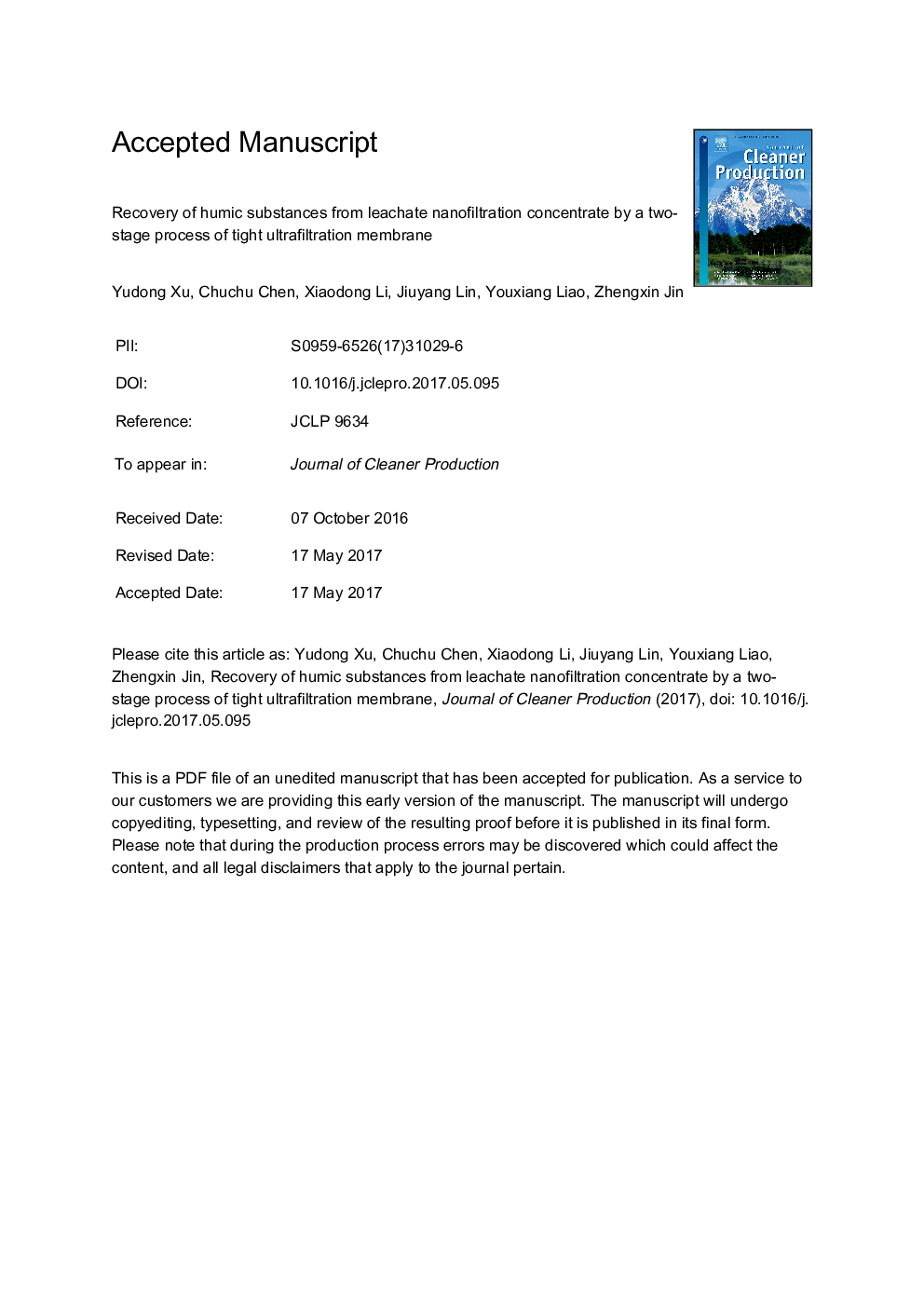| Article ID | Journal | Published Year | Pages | File Type |
|---|---|---|---|---|
| 5480819 | Journal of Cleaner Production | 2017 | 37 Pages |
Abstract
Membrane bioreactor (MBR) and nanofiltration (NF) hybrid process has dominated in the treatment of leachate, however, NF concentrate generated from the process remains a challenge to be addressed. Given the high content of humic substances (HS) in NF concentrate, a promising approach by using a two-stage tight ultrafiltration (TUF) process for recovering HS as a water-soluble fertilizer was proposed. The effect of operating factors on membrane flux and rejection of organic matters, and the concentration and desalination performance of this TUF process were investigated on pilot scale. The pressure and temperature posed significant influence on the flux, while slight impact on the rejection of organics, and pH had negligible effect on the flux and the retention of organics. During the concentration and desalting process, the chemical oxygen demand (COD) retention increased slightly from 91% to 94%, and the rejections of divalent and monovalent ions had the respective range of 21-62% and 10-26%, except chloride ion with a negative rejection. The results demonstrated that HS dominated in organics could be effectively separated and refined from inorganic salts. The end concentrate achieved with the two-stage TUF process can meet the requirements of Chinese nation professional standards for water-soluble fertilizers containing HS. This study illustrates the feasibility of recycling HS from NF concentrate.
Related Topics
Physical Sciences and Engineering
Energy
Renewable Energy, Sustainability and the Environment
Authors
Yudong Xu, Chuchu Chen, Xiaodong Li, Jiuyang Lin, Youxiang Liao, Zhengxin Jin,
